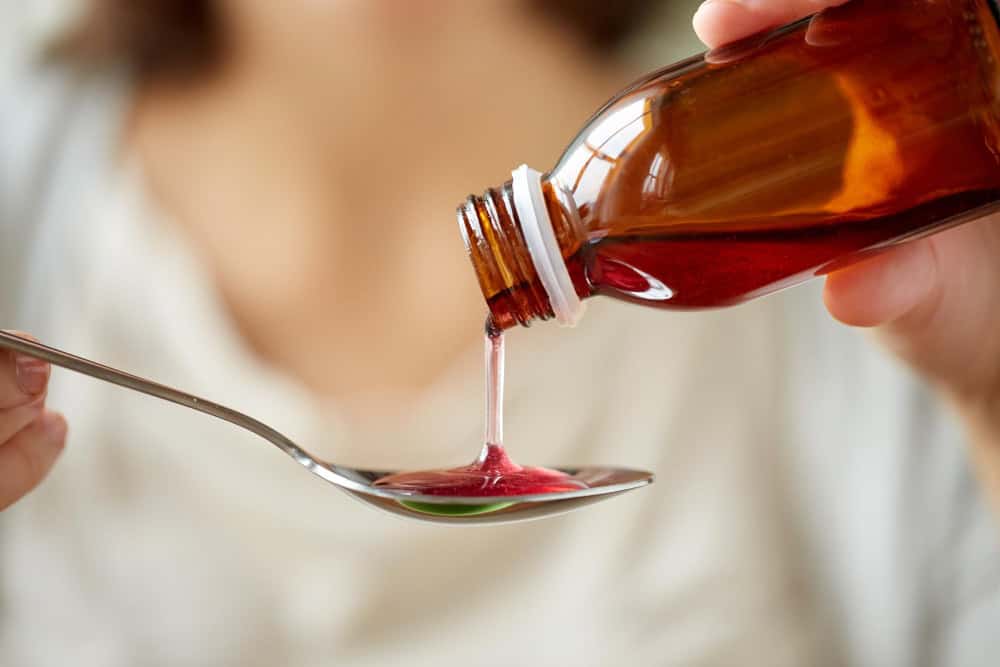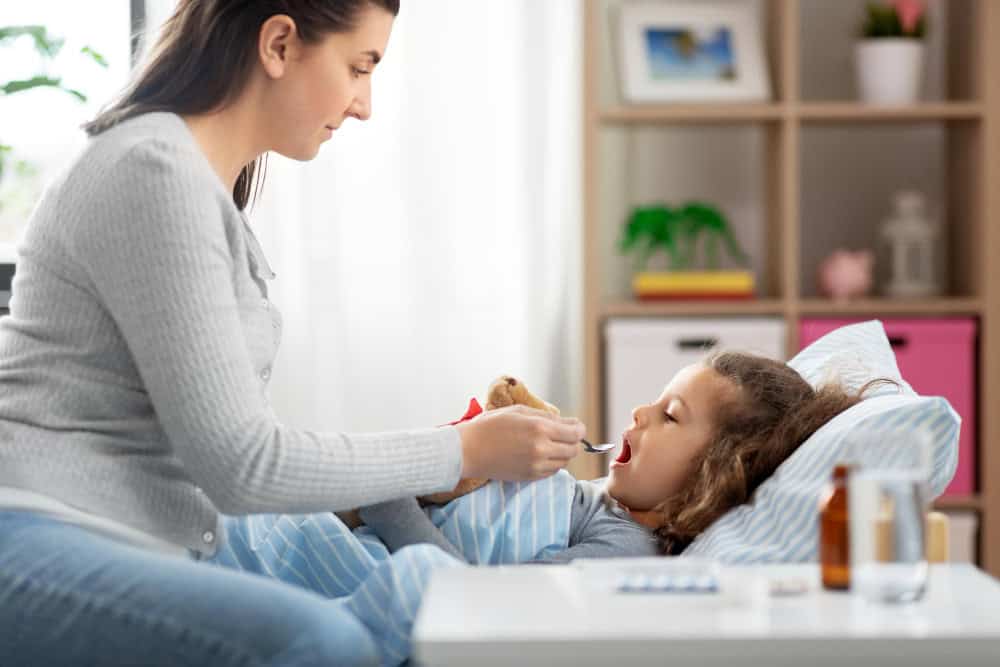
As a parent, hearing your child cough can be worrying, especially amid recent reports about cough syrup safety. The Union Health Ministry also recently reminded states that most coughs in children are self-limiting and require only supportive care, not multiple syrups or antibiotics [1].
Let’s find out more about coughing in children, what is the concern around the cough syrup contamination, and how, as parents, you can manage coughs safely while trusting verified, compliant products.
Cough Syrup Contamination: What You Need to Know and Do as a Parent

Recent tragic incidents involving children in the states of Rajasthan and Madhya Pradesh raised concerns over cough syrup safety. While a multidisciplinary team comprising experts continues to probe the exact cause of child deaths reported, experts warn against the irrational use of cough syrup in young children.
Usually, pharmaceutical-grade versions of water, propylene glycol, and glycerin are standard solvents used in cough syrups. However, due to factors like poor quality control, cost-cutting measures, the cough syrups are sometimes adulterated or replaced with Ethylene Glycol (EG) or Diethylene Glycol (DEG), both of which are highly toxic even when consumed in small quantities.
EG and DEG are industrial chemicals commonly used in antifreeze, paints, brake fluids, and plastics, not in medicines. These chemicals, when ingested, break down into toxic compounds, causing severe poisoning, affecting organs such as the kidneys, liver, and nervous system, with children being especially vulnerable.
Parent tip: Never self-medicate your child. Avoid giving over-the-counter cough syrups to children without a doctor’s advice. Always ensure that you buy medicines from trusted pharmacies.
Find out how Tata 1mg ensures medicine authenticity
Most Coughs in Kids Don’t Need Syrups

An occasional cough is normal and usually not a cause for concern. This is because cough is a healthy reflex that clears your child’s respiratory tract of mucus, irritants, and infections. Most children will recover from a cough on their own, and using cough syrup usually does not make it go away any faster.
The Union Ministry of Health and Family Welfare convened a high-level meeting under the chairmanship of the Union Health Secretary, Smt. Punya Salila Srivastava, with all States and Union Territories. During the meeting, Dr. Sunita Sharma, Director General of Health Services, reiterated that cough medicines for children should be used only when clearly indicated. She emphasized that “cough medications have minimal benefit in children but carry significant risks,” urging doctors to avoid prescribing when not needed [1].
Some cough syrups can have serious side effects, such as slowed breathing, which can be life-threatening, especially in infants and young children [2]. That’s why it’s important to speak to your doctor if your child needs medication, which treatments are safe and recommended, and when it’s best to avoid unnecessary medicine.
Ayurveda Expert-Recommended Home Remedies For Kids

Since most coughs in children are self-limiting. Home remedies often work best in such cases. Dr Deepak Kumar Soni, an Ayurveda expert, explains, as parents, you can:
- Keep your child well hydrated. Give your child warm fluids to ensure the airways are moist and soothes throat irritation.
- Give turmeric milk at night. Anti inflammatory effects of turmeric can help calm your child’s cough.
- Try Chyawanprash for your kid only if he or she is above 3 years of age. It can help relieve cough and provide overall immunity.
- Use a humidifier or air purifier. This can help moisten the airways and avoid a dry throat.
- Ensure proper rest. This will help your kid recover fast.
While some coughs are harmless and can be taken care of with home remedies, it’s always advisable to check with your doctor for evaluation.
Red flags for parents to watch out for:
- A high fever (>101°F) lasting more than three days
- Fast or labored breathing, chest indrawing, or wheezing
- A chronic cough for more than three weeks or a cough that worsens after initial recovery
- Unusual drowsiness, irritability, or inability to drink fluids
- Passing less urine or showing swelling (possible kidney issue)
- Blue lips or fingertips, or any sign of distress
The Role of Regulation — and What Parents Can Do

The Director General of Health Services (DGHS) has issued strict instructions to use cough syrups rationally and carefully in children [1][3]:
- No cough syrups for children under the age of 2
- Avoid cough syrups for kids under the age of 5
- For kids above 5 years, cough syrups are to be given after consulting with a doctor
- Hospitals and pharmacies procure Good Manufacturing Practices (GMP) certified medicines
- Avoid mixing medicines or overdosing
Guidelines for parents:
- Stick to doctor-recommended doses
- Avoid self-medicating children under any circumstances
- Check the batch number, expiry date, and manufacturer name
- Watch for warning signs like vomiting, drowsiness, and persistent fever
- Buy medicines only from trusted pharmacies carrying licensed brands.
Get your medicines delivered to your doorstep with Tata 1mg.
Remember, by closely monitoring symptoms, providing supportive care, and consulting a doctor when necessary, parents can help their children recover from coughs safely.
FAQs
Q1: Should I give medicine every time my child coughs?
Most coughs in kids are self-limiting, meaning they resolve on their own. This is why not all coughs in kids require medicine. However, it’s always recommended to consult a paediatrician before making an informed decision.
Q2: What are the risks of cough medicine in kids?
Some cough syrups can have serious side effects, such as slowed breathing, which can be life-threatening, especially in infants and young children [2]. That’s why it’s important to know when your child needs medication, which treatments are safe and recommended, and when it’s best to avoid unnecessary medicine.
Q3: What are the signs of a serious cough in kids?
A cough may be serious if it is accompanied by a high fever, fast or labored breathing, a persistent cough beyond 3 weeks, unusual drowsiness, swelling, or blue lips. You should seek medical help right away if you notice these signs.
Q4: Is honey a safe cough suppressant for kids?
Yes, for children over 1 year old, honey can help ease coughs and may work as well as diphenhydramine, a common over-the-counter cough medicine. Usually, you can give ½ to 1 teaspoon (2.5–5 ml) to a kid above 1 year of age, but always check with your doctor to rule out what works best for your kid.
Q5: How to reduce cough naturally in kids?
There are a number of home remedies that you can try to reduce cough naturally in your child. These include ensuring hydration using hot water or honey, humidifiers, or air purifiers to moisten the air, and providing a comfortable setting for your child.
References
1. Ministry of Health and Family Welfare. Available online at https://www.pib.gov.in/PressReleasePage.aspx?PRID=2175135
2. FDA. Should You Give Kids Medicine for Coughs and Colds? Available online at https://www.fda.gov/consumers/consumer-updates/should-you-give-kids-medicine-coughs-and-colds
3. Available online at: https://www.newsonair.gov.in/health-ministry-advises-cough-syrups-should-not-be-prescribed-or-dispensed-to-children-below-two-years/
(The article is written by Dr.Subita Alagh, Assistant Team Lead, and reviewed by Dr. Swati Mishra, Director, Clinical Health & Content, Medical Affairs)